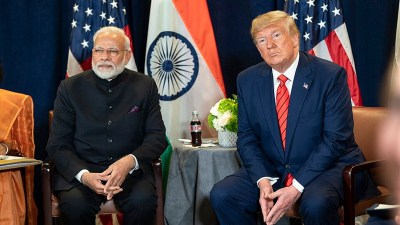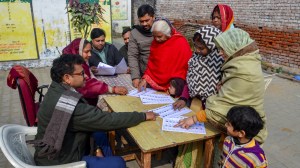Big Heart, Crowded City
...

This is why one opens Thrity Umrigar8217;s new novel, The Space Between Us, with a slight pang. Between Bhima, an elderly woman who works as a maid in a middle-class household, and her employer Sera Dubash, there is very little physical space. So little that Dinaz, Sera8217;s yuppie daughter, chides her mother for not letting Bhima use the same crockery that the family uses, and not letting her sit on the living room furniture.
But these are the contradictions of middle-class lives. When Sera8217;s husband beats her up, Bhima massages Sera8217;s body with herbs and oil; when Bhima8217;s grand-daughter has to get an abortion, Sera accompanies her to the clinic. And yet there remains this great divide between the lives of the two women. A divide that Bhima reflects on when she contemplates Sera8217;s daughter8217;s pregnancy 8212; a child that is nurtured with warmth and good cheer 8212; while her grand-daughter8217;s unborn child is 8220;extracted as easily as a tooth8221;.
And it8217;s this lack of space 8212; in every sense of the word 8212; that is one of the reasons for the tragic collapse of the divide between them.
There are many problems with Umrigar8217;s storytelling, not least of all the cliched motifs and predictable plot turns 8212; the basti fights, the teenage pregnancy, the violence of husbands, the accident at the factory, the women8217;s solidarity, the water-sharing moment with the sensitive Muslim. The narrative is often disjointed and moves at an uneven pace. At places, the sentences are so predictable that one can form the lines in one8217;s head even as one reads on. The AIDS scenes are particularly trite 8212; the former truckdriver now dying of the disease, the crowded hospital, the moment of shock 8212; 8220;Nobody lives from this wicked illness8230; exactly like a curse, didi.8221;
And yet there8217;s much compassion in these pages for the people who are trapped within these cliches. For Sera8217;s struggle with her batty mother-in-law; for the Parsi way of life, with much good-humoured joking about honesty, charity and dreams of returning to Iran; and for Maya, whose college education is cut short by the tragic turn of events.
And finally there is compassion and empathy for the courageous Bhima, whose name evokes the strength of the strongest of the Pandava brothers. All of us have known Bhima. She is the Bai who scrubbed our dishes as we grew up; she fed us, washed our clothes, polished our keds and made us cups of tea 8212; even as her own life was lived precariously from day to day. Mumbai lives on the efforts of hundreds of thousands of women like Bhima. This novel is a moving, if imperfect, tribute to them all.
- 01
- 02
- 03
- 04
- 05































